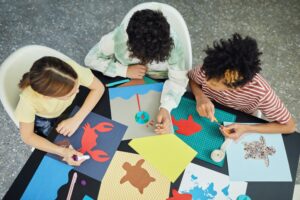The education system plays a crucial role in shaping the future of individuals and societies. However, traditional educational approaches may no longer be sufficient in preparing students for the challenges of the modern world. This article delves into the out-of-the-box changes that our education system desperately needs to meet the evolving needs of learners and to foster creativity, critical thinking, and adaptability.
Emphasis on Skills over Memorization:
The current education system often focuses on rote memorization rather than fostering essential skills. Shifting the emphasis towards developing skills such as critical thinking, problem-solving, communication, and collaboration is crucial. By prioritizing skills, students will be better equipped to navigate the complexities of the real world.

Personalized Learning:
One size does not fit all in education. Personalized learning approaches that cater to individual strengths, interests, and learning styles can unlock the potential of every student. Utilizing technology, adaptive learning platforms, and differentiated instruction can tailor education to meet the unique needs of learners.

Integration of Technology:
Incorporating technology into the classroom is no longer an option but a necessity. Technology can enhance engagement, facilitate access to information, and enable interactive learning experiences. By embracing digital tools, online resources, and educational platforms, educators can create dynamic and engaging learning environments.

Focus on Critical Thinking and Problem-Solving:
The ability to think critically and solve complex problems is invaluable in the modern world. Education should prioritize the development of these skills through inquiry-based learning, project-based assessments, and real-world applications. Encouraging students to analyze, evaluate, and find innovative solutions will empower them to become lifelong learners.
Cultivating Creativity and Innovation:
Creativity and innovation are essential for fostering entrepreneurship, adaptability, and out-of-the-box thinking. Education should provide opportunities for students to explore their creativity, express themselves through various mediums, and engage in open-ended problem-solving. Emphasizing the arts, design thinking, and interdisciplinary approaches can unleash the creative potential of learners.

Global Perspectives and Cultural Competence:
As the world becomes increasingly interconnected, it is crucial for students to develop global perspectives and cultural competence. Education should incorporate diverse perspectives, promote understanding of different cultures, and encourage collaboration across borders. Exposing students to global issues, offering language learning opportunities, and facilitating cultural exchanges can help foster global citizenship.

Well-being and Social-Emotional Learning:
Prioritizing the well-being and social-emotional development of students is vital for their overall growth and success. Education should focus on nurturing resilience, emotional intelligence, empathy, and mindfulness. Incorporating social-emotional learning programs, promoting mental health support, and creating inclusive and supportive learning environments are essential steps.

Transforming the education system requires a shift in mindset, innovative approaches, and collaboration among educators, policymakers, and stakeholders. By emphasizing skills, personalization, technology integration, critical thinking, creativity, global perspectives, and well-being, we can create an education system that prepares students for the complexities of the 21st century. It is time to embrace out-of-the-box changes and pave the way for a more inclusive, engaging, and effective educational experience.


